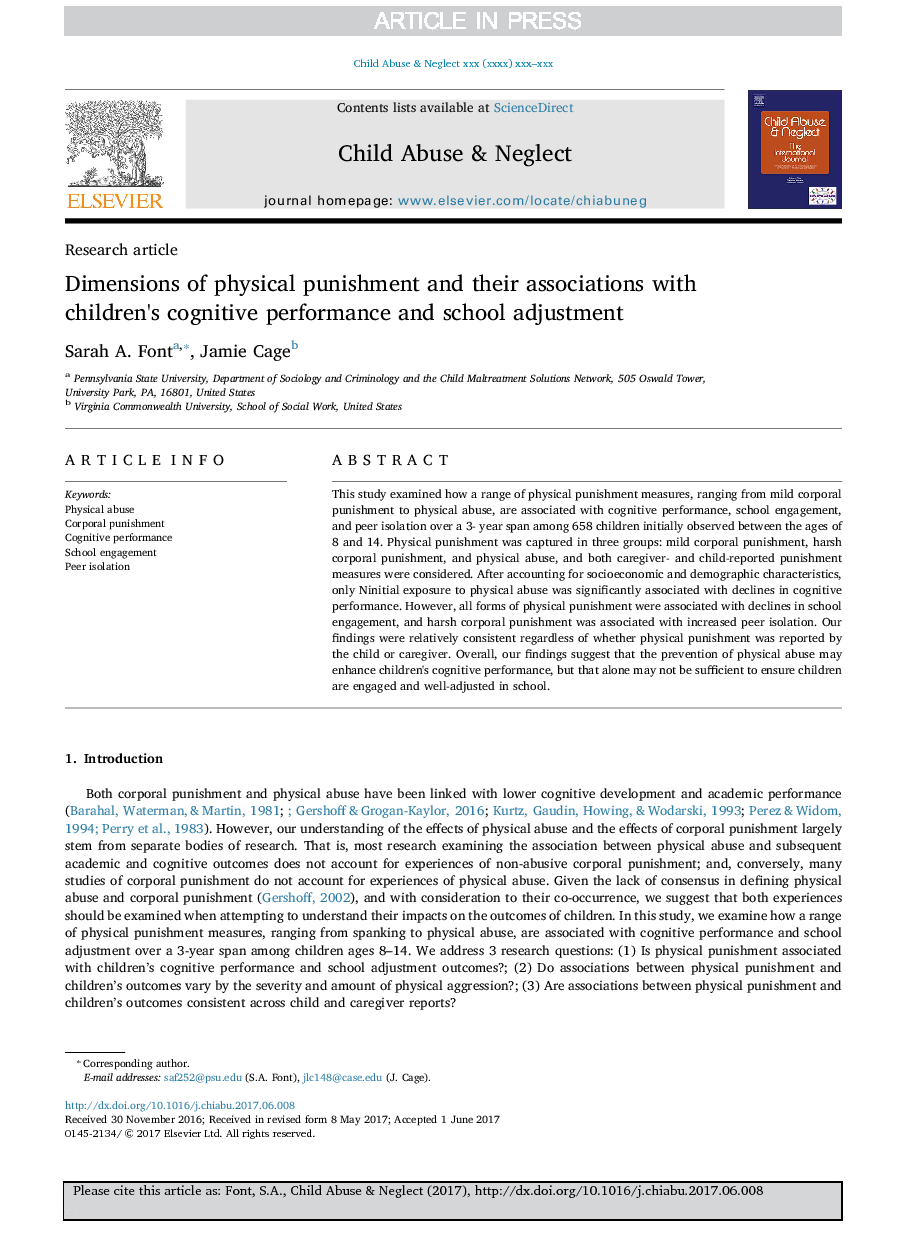ترجمه فارسی عنوان مقاله
ابعاد مجازات جسمانی و ارتباط آنها با عملکرد شناختی کودکان و تعدیل مدرسه
عنوان انگلیسی
Dimensions of physical punishment and their associations with children's cognitive performance and school adjustment
| کد مقاله | سال انتشار | تعداد صفحات مقاله انگلیسی |
|---|---|---|
| 116403 | 2018 | 12 صفحه PDF |
منبع

Publisher : Elsevier - Science Direct (الزویر - ساینس دایرکت)
Journal : Child Abuse & Neglect, Volume 75, January 2018, Pages 29-40
ترجمه کلمات کلیدی
بدرفتاری فیزیکی، تنبیه بدنی، عملکرد شناختی، مشارکت مدرسه، انعطاف پذیری همکار،
کلمات کلیدی انگلیسی
Physical abuse; Corporal punishment; Cognitive performance; School engagement; Peer isolation;
ترجمه چکیده
در این مطالعه بررسی شد که چگونه تعدادی از اقدامات مجازات فیزیکی، از جمله مجازات خفیف بدن تا سوء استفاده فیزیکی، با عملکرد شناختی، مشارکت مدرسه و انزوای همسالان در طول یک دوره 3 ساله در میان 658 کودک که در ابتدا بین 8 تا 14 سالگی دیده می شود، مجازات جسمانی در سه گروه مجازات ذهنی، مجازات شدید جسمانی و سوء استفاده فیزیکی و هر دو اقدامات مجازات مراقبتی و کودک مورد بررسی قرار گرفتند. پس از حسابداری از ویژگی های اجتماعی-اقتصادی و جمعیت شناختی، تنها نزدیک شدن آزار و اذیت فیزیکی به طور قابل توجهی با کاهش عملکرد شناختی مرتبط بود. با این وجود، تمام اشکال مجازات جسمانی با کاهش در مشارکت مدرسه همراه بود و مجازات شدید بدنی با افزایش انعکاس همتایان مرتبط بود. یافته های ما نسبتا پایدار بود بدون در نظر گرفتن اینکه مجازات جسمی توسط کودک یا مراقب گزارش شده است. به طور کلی، یافته های ما نشان می دهد که پیشگیری از سوءاستفاده جسمانی ممکن است عملکرد شناختی کودکان را افزایش دهد، اما این تنها ممکن است برای اطمینان از اینکه کودکان در مدرسه مشغول به کار هستند و به خوبی تنظیم شده اند، کافی نیست.

